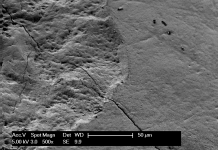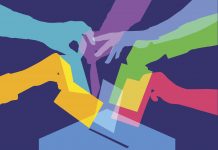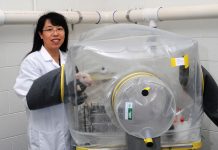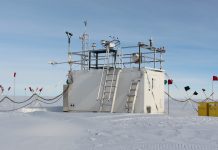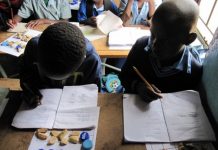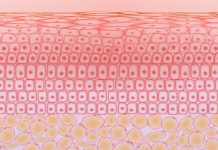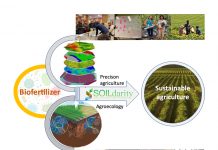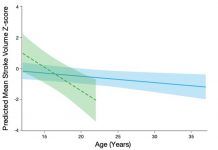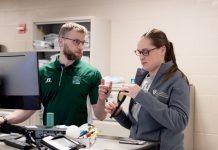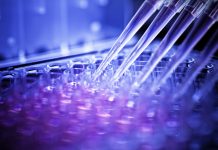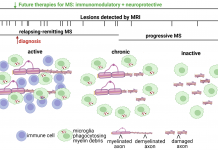Open Access Government produces compelling and informative news, publications, eBooks, and academic research articles for the public and private sector looking at health, diseases & conditions, workplace, research & innovation, digital transformation, government policy, environment, agriculture, energy, transport and more.
Home 2023
Archives
Keep your teeth for life: The tartar challenge
Dr. Marcel Donnet and Dr. Dixit Neha discuss how GBT can overcome the challenge of tartar removal to preserve your teeth for life.
Governance beyond the ballot: Norms, populism, and post-election preferences
In this article, Mariken A.C.G. van der Velden, Professor of Political Communication at Vrije Universiteit Amsterdam, explores citizens’ preferences for government formation.
Gnotobiotic pig models: Illuminating the enigma of human norovirus infection and immunity
Dr Lijuan Yuan and her team have studied human noroviruses (HuNoV) in gnotobiotic pigs for over 15 years. Here, she explains how such research is advancing our understanding of HuNoV pathogenesis, infectivity, and immunity.
CO2 bioeconomy: Creating value from carbon dioxide
Is the CO2 bioeconomy creating value from carbon dioxide? Dr Kang Lan Tee and Professor Tuck Seng Wong both explain.
West Antarctica’s contribution to sea level rise as Earth’s climate warms
Dr Dan Lubin, Researcher at the Scripps Institution of Oceanography, explores the contribution of West Antarctica to sea level rise as Earth’s climate warms.
Exploring the role of machine learning in materials science and engineering
In this paper, Professor Dane Morgan and Research Scientist Ryan Jacobs, from the University of Wisconsin, Madison, discuss their adventures in the field of machine learning in the areas of materials science and engineering.
Fostering fundamental computational skills, a global challenge
Koji Watanabe, Professor from Miyazaki International University in Japan, argues that fostering fundamental computational skills is a global challenge.
The rotating lepton model: Electron and positron catalysis of chemical and nuclear synthesis
Professor Emeritus Constantinos Vayenas from the University of Patras and PhD student Dionysios Tsousis from Stanford University discuss electron and positron catalysis in the CERN e+e- annihilation experiments via the Rotating Lepton Model.
Microbiome of the skin: The good and the bad
Chronic wounds are a significant burden to patients and health systems; Manuela Martins-Green from the University of California tells us how her research in understanding the dynamics of wound healing could aid new approaches to wound care.
The relevance of human flourishing to offender rehabilitation
Sung Joon Jang and Byron R. Johnson, both from Baylor University, turn the spotlight on the relevance of human flourishing to offender rehabilitation in Colombia and South Africa.
Can we do drug repositioning without disease gene expression?
Chuo University’s Professor Y-h. Taguchi examines the application of cutting-edge single-cell-based measurements in drug repositioning.
Early detection of algal infection using direct real-time chemical ionization mass spectrometry
Robert S. Pomeroy, Teaching Professor at UC San Diego, guides us through the early detection of algal infections using direct real-time chemical ionization mass spectrometry.
Integrating biofertilizers and precision agriculture
This article presents a comprehensive analysis of the integration of biofertilisers and precision agriculture, with the aim of creating a virtuous circle of agricultural growth and sustainability, by Cristina Cruz and Teresa Dias of the Faculdade de Ciências da Universidade de Lisboa.
Factors that contribute to the gender gap in entrepreneurial self-confidence
A study by Professors Dempsey and Jennings offers key insights into why women tend to be less confident than men in their entrepreneurial ability.
Age-related changes in cardiomyopathic phenotype in patients with barth syndrome
With current treatment options for BTHS cardiomyopathic phenotype focused predominantly on alleviating symptoms, Dr Hani N. Sabbah, Director of Cardiovascular Research at Henry Ford Health, explores the potential of more targeted treatment approaches.
Decoding the brain’s role in preventing and recovering from knee injuries
Dustin Grooms, Professor of Clinical Neuroscience at Ohio University, tells us about his research on the brain’s role in shaping injury-risk movement patterns and how this knowledge could aid rehabilitation practices and the development of new therapies to mitigate the risk of knee injuries.
The research experiences for undergraduates (REU) program
Greg M. Swain, hailing from the Department of Chemistry at Michigan State University, examines cross-disciplinary training in sustainable chemistry and chemical processes, including the critical role of mentoring and finding research experiences for undergraduates.
Isotopic applications assit in forensic tracking of illegally traded wildlife parts
Keith A. Hobson, a Research Scientist and Professor at Environment and Climate Change Canada, discusses the use of stable isotopes to trace the origins of animal parts in order to mitigate the illegal wildlife trade.
Crafting investment models through contradictory value and momentum investment strategies by artificial intelligence
Professor Chien-Feng Huang discusses how Artificial Intelligence could provide innovative models and strategies to solve investment problems.
Targeting the central nervous system: The future of therapeutic strategies for MS
Tara M. DeSilva from the Department of Neurosciences, Cleveland Clinic, looks at the future of therapeutic strategies for MS, focusing on targeting the central nervous system.

